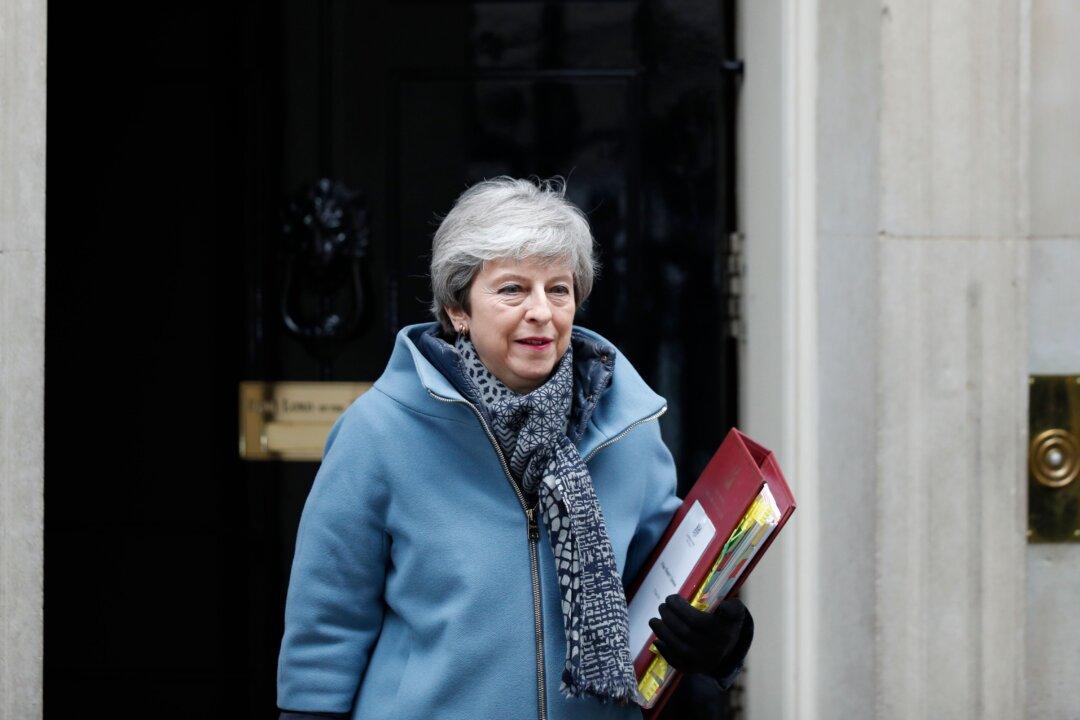LONDON—British Prime Minister Theresa May has said she is willing to resign if lawmakers in her party back her Brexit deal.
“I am prepared to leave this job earlier than I intended in order to do what is right for our country and our party," May told a meeting of Conservative Party lawmakers on March 27.




